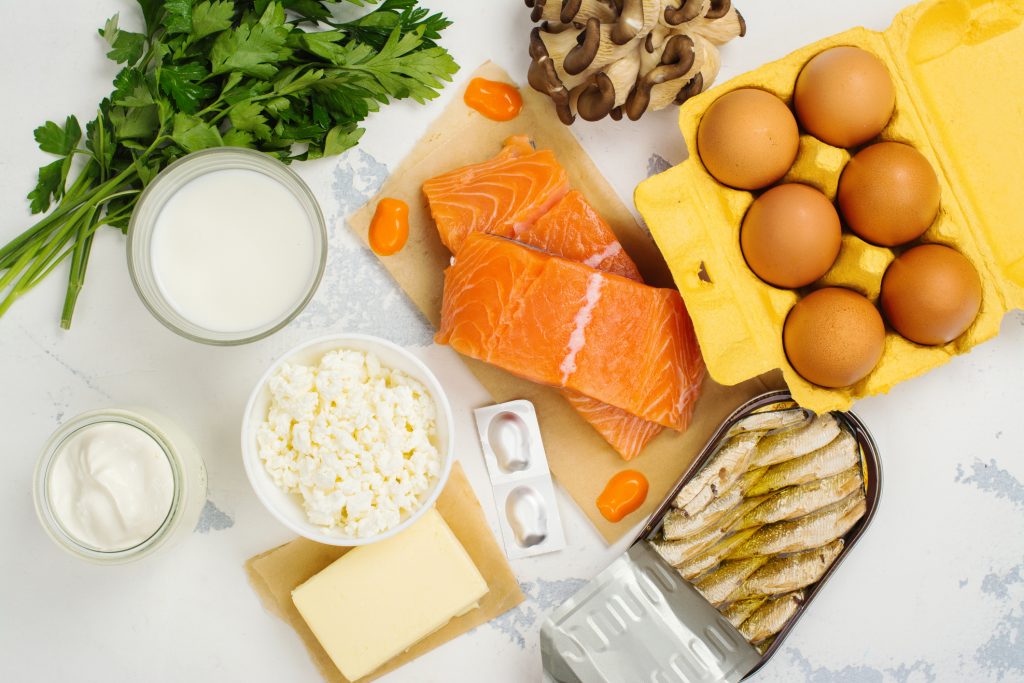How to Know Which Supplements You Need


This month FoodTrients writer and nutritionist Ginger Hultin continues her four-part series on vitamins and supplements. Part 3 explores vitamin deficiencies and what you can do.
 Despite what the supplement industry may have you believe; in a balanced whole food-based diet you will get most of the vitamins and minerals your body needs. You’ll also get other health boosting ingredients such as phytochemicals, fiber, and antioxidants. However, there are times that supplementation can be beneficial but how to tell what you need can be confusing and complex. Overt signs of deficiency can be hard to assess without lab testing and support from a medical professional like a doctor or registered dietitian nutritionist. It is also important to be knowledgeable about how much of which supplement to take if you choose to take them, and any possible interactions with mediations or other supplements. Let’s discuss when you may need to supplement, how to know, and how to dose them if you do take them.
Despite what the supplement industry may have you believe; in a balanced whole food-based diet you will get most of the vitamins and minerals your body needs. You’ll also get other health boosting ingredients such as phytochemicals, fiber, and antioxidants. However, there are times that supplementation can be beneficial but how to tell what you need can be confusing and complex. Overt signs of deficiency can be hard to assess without lab testing and support from a medical professional like a doctor or registered dietitian nutritionist. It is also important to be knowledgeable about how much of which supplement to take if you choose to take them, and any possible interactions with mediations or other supplements. Let’s discuss when you may need to supplement, how to know, and how to dose them if you do take them.
Common Nutrient Deficiencies
In the United States there are common deficiencies within our population. For example, we tend to have lower intakes of magnesium and potassium from natural dietary sources. People in more northern latitudes have increased risk of deficient vitamin D levels due to less consumption of foods rich in these nutrients and lack of sun exposure, which is used by the body to create vitamin D. Further north, the angle of the sun between November and March blocks nearly all UVB rays, the kind that can synthesize vitamin D.
This chart highlights some common nutrients of concern, the recommended intake for adults, and where you can find it in foods to ensure you’re getting enough.
| Recommended daily intake – adult | Common foods | amount/serving | % daily needs | |
| Magnesium | Women 310-320 mg
Men 400-420 mg |
Roasted pumpkin seeds | 156mg/1 ounce | 37% |
| Spinach | 78mg/0.5 cup cooked | 19% | ||
| Almonds | 80mg/1 ounce | 18% | ||
| Soymilk | 61mg/1 cup | 15% | ||
| Black beans | 60mg/0.5 cup | 14% | ||
| Potato – baked with skin | 43mg/3.5oz | 10% | ||
| Potassium | Women 2,600 mg
Men 3,400 mg |
Dried apricots | 1101mg/0.5 cup | 23% |
| Lentils | 731mg/1 cup | 16% | ||
| Acorn squash | 644mg/1 cup mashed | 14% | ||
| Banana | 429/ 1 medium | 9% | ||
| Vitamin D | Men and Women 600IU or 15mcg | Cod liver oil | 1360IU/ 1 tablespoon | 170% |
| Salmon | 570IU/ 3 oz. serving | 71% | ||
| Milk, 2% fortified | 120IU/ 1 cup | 15% | ||
| Egg | 44IU/ 1 scrambled egg |
6% |
Diet-Specific Deficiencies
Deficiencies can also occur in restrictive diets such as low carb (South Beach, Atkins, Ketogenic, etc.), vegan diets, or other patterns that restrict certain food groups. Any time that you remove a food (even gluten free or dairy free diets!), you risk removing certain key nutrients. Here’s an overview of what to consider with common dietary restrictions:
 Low Carb Diets
Low Carb Diets
Deficiencies could include potassium, magnesium, phosphorus, calcium, and many of the B vitamins. These nutrients are commonly found in carbohydrate-rich foods such as whole grains and starchy vegetables. Additionally, many of these nutrients including calcium and magnesium, are underrepresented in daily multi-vitamins due to the physical size of the molecules. That could mean taking additional supplementation that a general multivitamin can’t meet.
Vegan Diets
Though vegan diets have proven to be health-promoting, cutting out animal products can lead to low levels or deficiencies including B12, vitamin D, omega 3 fatty acids, iron, zinc, calcium, and iodine. Supplementation is definitely needed for B12 but be sure to consider other nutrients, especially if you don’t consume adequate calories or have other restrictions within the dietary pattern (no gluten, no soy, grain-free, etc.)
How to Find Nutrient Deficiencies
Testing – Blood tests are the most common way to assess vitamin and mineral levels. Some companies are offering at-home blood or saliva tests, though it is best to work with a doctor or naturopath if deficiencies are suspected to get their professional input on types and amounts of supplements, and to monitor levels during supplementation.
Physical Symptoms – Some people may have symptoms of deficiency such as fatigue, skin problems, brain fog, thinning hair or nails, or digestive issues. However, it can be difficult to attribute these symptoms to a certain deficiency unless testing is done to confirm.
Additional Considerations
Genetic mutations – Genetic issues can cause increased needs for certain nutrients. One example is a mutation in the MTHFR gene which impacts vitamin B12 and folate metabolism and may require supplementation. Speak to your doctor to see if testing could be beneficial based on your unique needs and medical history.
Toxicity – Taking too much of a certain nutrient can cause toxicity or can impact absorption of other nutrients. Even vitamins can be problematic. For example, vitamin C or magnesium in high doses causes diarrhea, and fat soluble vitamins such as A, D, E, and K can become toxic when levels are too high.
Dietary Reference Intakes (DRI)
These references are issued by the Food and Nutrition Board of the Institute of Medicine which is part of the National Academy of Sciences. This board reviews current research to assess the adequate nutritional intake for most people. Here is a breakdown of how you may see this on labels so you can better understand the language on products:
| RDA
(Recommended daily amount) |
AI
(Adequate Intake) |
UL/TUL
(Upper limit) |
EAR
(Estimated average requirement) |
| Definition: the average daily dietary intake level that is sufficient to meet the nutrient requirement of nearly all (97 to 98 percent) healthy individuals in a group. What it means: aim for this intake – including foods! | Definition: a value based on observed or experimentally determined approximations of nutrient intake by a group (or groups) of healthy people—used when an RDA cannot be determined. What it means: aim for this intake – including from foods! | Definition: the highest level of daily nutrient intake that is likely to pose no risk of adverse health effects to almost all individuals in the general population. As intake increases above the UL, the risk of adverse effects increases. What it means: dosing to stay below to avoid adverse effects | Definition: a nutrient intake value that is estimated to meet the requirement of half the healthy individuals in a group. What it means: used to assess needs of a group – not applicable to individuals |
Supplements can be a great addition to a healthy diet when they’re indicated to support your needs. Working with a licensed and credentialed health professional who is familiar with supplements is helpful to find any areas that need to be supplemented, which form will be most beneficial, and how much is needed. Often the best way to increase nutrient intake is through foods as this is generally the best way to optimize the body’s ability to absorb and use nutrients. Foods rich in vitamins and minerals often have other benefits as well, which can be an extra boost to our health. A registered dietitian nutritionist (RDN) is a great resource if you want help with this.
References
Marra MV, Bailey RL. Position of the Academy of Nutrition and Dietetics: micronutrient supplementation. Journal of the Academy of Nutrition and Dietetics. 2018 Nov 1;118(11):2162-73.
U.S. Department of Health and Human Services. (n.d.). Office of dietary supplements – nutrient recommendations: Dietary reference intakes (DRI). NIH Office of Dietary Supplements. Retrieved April 20, 2022, from https://ods.od.nih.gov/HealthInformation/Dietary_Reference_Intakes.aspx#:~:text=DRI%20is%20the%20general%20term,%25%2D98%25)%20healthy%20people.
Link to Vitamins and Supplements Series:
Part 1 – Do You Need To Take Supplements?
Part 2 – Are Supplements Safe for You?
Part 3 – How to Know Which Supplements You Really Need
Part 4 – Can Supplements Help Certain Conditions?
.